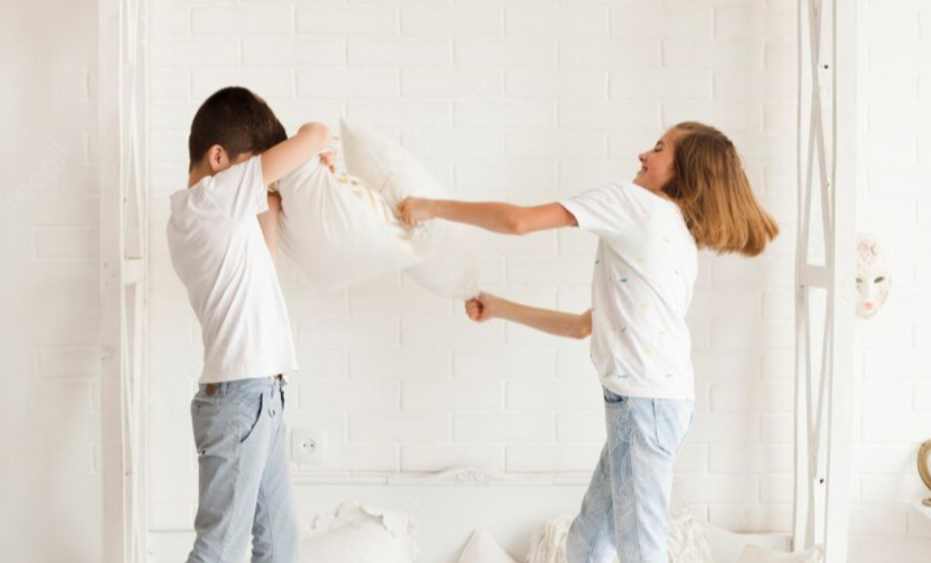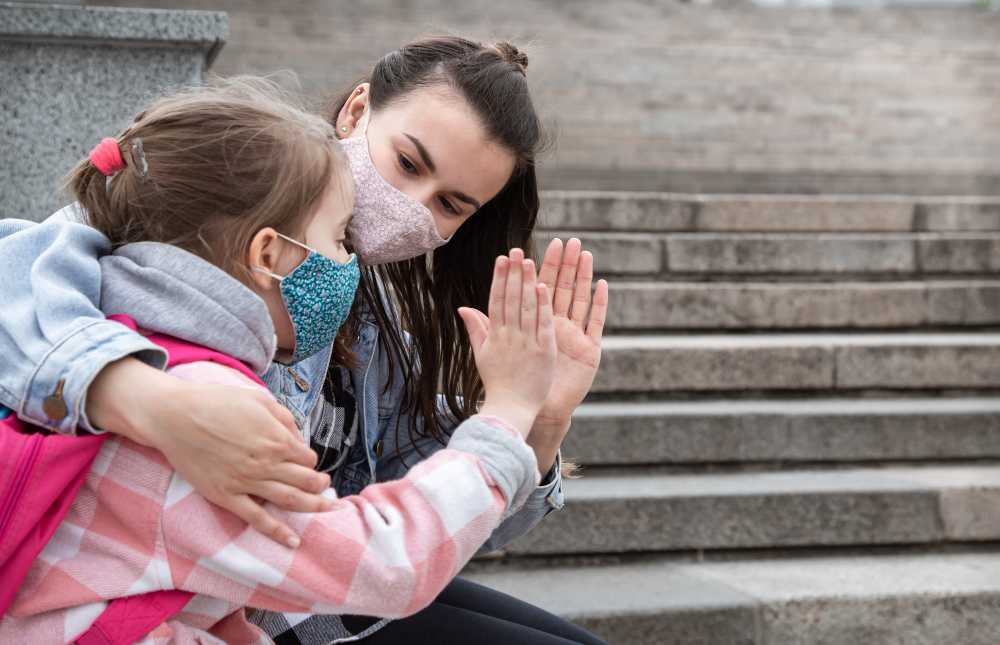We’ve all been there: you’re enjoying a peaceful playtime with other moms, and then the tranquility is shattered when one kid smacks another.
While children, particularly toddlers, frequently strike one other during playtime, it can be frustrating for parents to figure out the best method to deal with this behavior.
It might be uncomfortable to be the parent whose kid hits others in the park or at daycare, and you’d be pondering what solutions are most effective in resolving this issue.
You are not the only one concerned, and whether your child is striking you or others, there are specific steps you can take to fix the issue.
12 Effective Ways to Stop a Child from Hitting
-
Try reasoning
At this age, determining the cause of your toddler’s distress can be difficult: Is she striking because she is frustrated because she can’t find her teddy bear? Or does she want something to eat? Assist her in putting her gestures into words. If she smacks the dish of fruits because it isn’t what she desires, for example, say, “You’re craving chocolate! ‘How about saying chocolates?'”
-
Stay calm
Some children assume that any form of attention is preferable to no attention at all. So, if you stress out when your toddler is doing something wrong, she will be attracted and will have a motivation to do it again.
-
Empathize
Your kid may not comprehend her feelings of rage or irritation at this age, but that’s still a great idea to describe these feelings for her. For example, “You must be furious that tina took the yellow toy,” or “I’m sure you’re furious that Mama won’t allow you to jump on to dining table.” Simultaneously, using positive reinforcement, such as complimenting your kid when she exchanges a toy or uses a kind touch, will encourage better behaviour in the future.
-
To de-escalate the issue, use time-outs.
Typically, by the age of two, the youngster understands the link between being violent and the outcomes. Ask your child to express regret by saying “I’m sorry.” If he is no longer furious, he may want to kiss or hug you.
-
Encourage gentle Play
Keep an eye on the toddler who frequently knocks on toys. While part of this behavior is acceptable, it can also signify tension and rage. The child is at risk of behaving in this manner toward humans. Aside from addressing the underlying cause, encourage more compassionate Play: Pet, the kitty, Hug the bear, Love the doll.
-
Reward good behavior
Children over the age of three respond strongly to positive reinforcement, such as a no-hitting chart: You behaved so good with everyone; you definitely deserve an extra scoop of ice cream.
-
Teach home rules.
Children do not understand home rules until they are taught. Thus, one of your most important parenting jobs is to teach them. Toddlers are naturally curious and enjoy touching and exploring, so if you don’t want them to handle any valuables, hide or remove them. Consider creating a separate area in your home for your youngster to play with books and toys. When children violate an essential rule, they should be disciplined immediately so that they understand exactly what they’ve done wrong.
-
Stay Strong
If you must punish your child, don’t feel bad about it and don’t apologize. If your child senses your conflicted emotions, he will believe that he was always correct and that you are the “wrong” one. Though correcting your child is never fun, it is an unavoidable part of parenthood, and there is no need to feel bad about it. Instead, your child must learn that when he is wrong, he must accept responsibility for one’s actions and be willing to face the consequences.
-
Enter healthy distractions
While training your child different strategies to adapt, there’s nothing incorrect with distracting him or trying another method from time to time. So long as you aren’t “bribing” him into behaving differently by providing him sweet treats. There’s nothing wrong with him purposefully shifting his concentration, for example.
-
Monitor media consumption
It is critical to supervise everything your child watches, including cartoons, to ensure that there is no violence in the programs. Children who have been exposed to aggression portrayed in the media are much more likely to be aggressive themselves, according to research.
-
Don’t hit your child.
Even if you believe spanking is a legitimate method of punishment for an older child, you must never spank a one-year-old. At this stage, your kid is cognitively unable to associate you’re beating him, no matter how gently, with anything he has done.
-
Promote problem-solving techniques.
Use imaginative play to teach your child positive methods to deal with a difficult situation. You may play the role of another youngster who has stolen your toddler’s favorite toy. Teach him how to use his words, and if it doesn’t work, tell him he must seek assistance from an adult. Act out such scenes as often as possible to retain the teachings.
![]()











